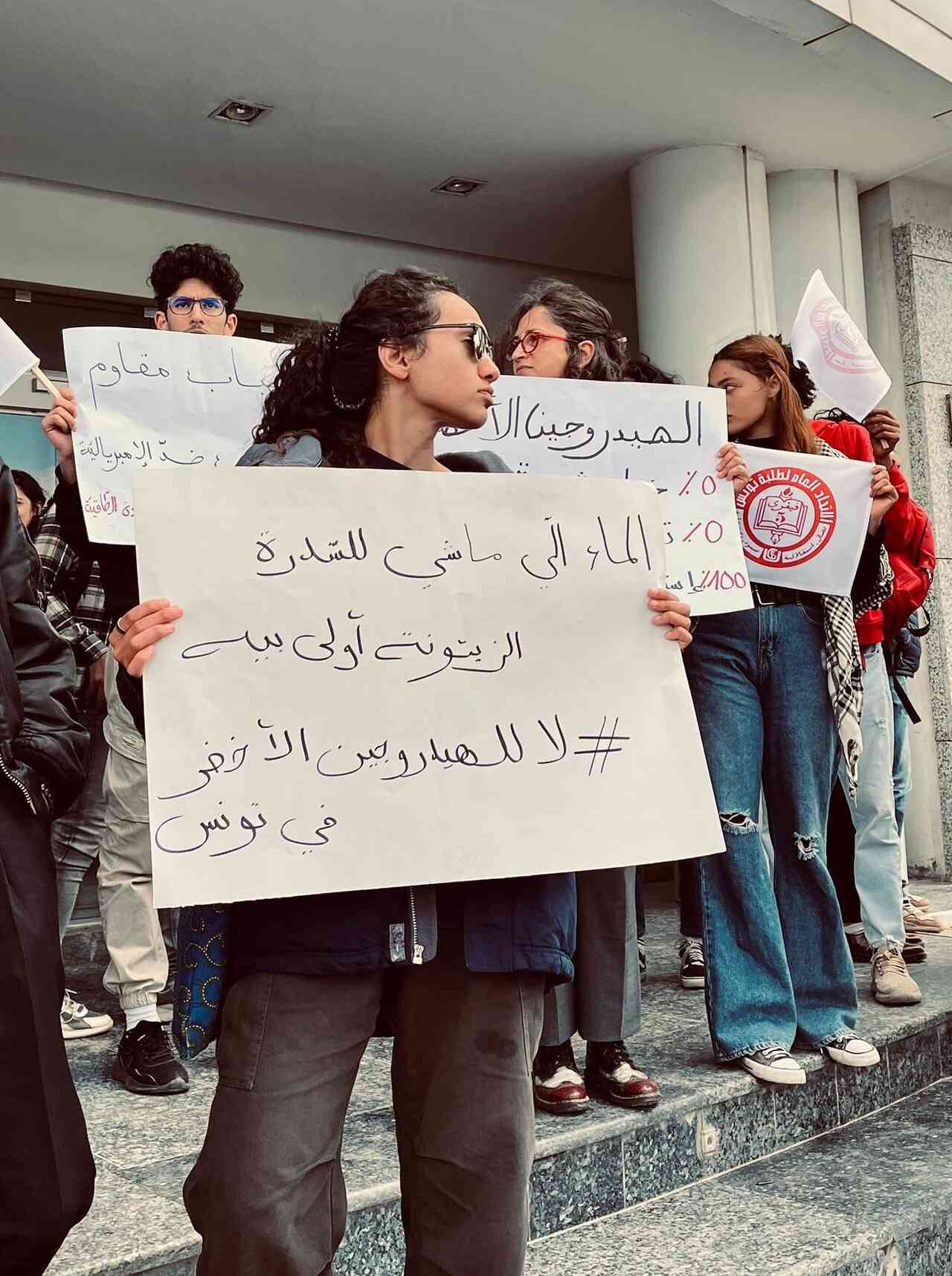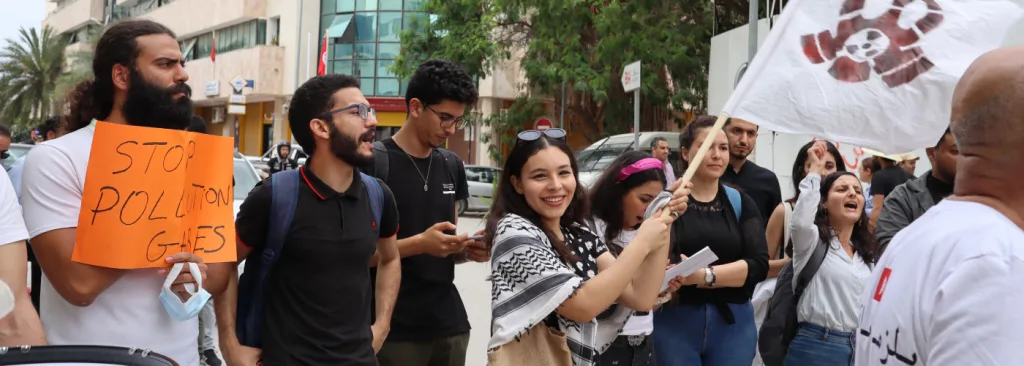Parliamentarians slam government renewable energy violations
In March 2025, 86 deputies from Tunisia’s Assembly of the People’s Representatives issued a public statement accusing the Ministry of Industry, Mines, and Energy of numerous legal and procedural violations in its management of renewable energy projects. This has put the growing demand for greater transparency, energy sovereignty, and legal compliance at the center of national discourse: a significant win for the just energy transition movement that has been gaining traction since 2023.
The deputies cited violations of Law No. 12 of 2015, which governs private sector involvement in energy, and criticized the Ministry for signing contracts and agreements without parliamentary approval. They also expressed concern about the transfer of carbon credit rights to foreign companies and the long-term financial burden such contracts would place on the Tunisian treasury.
Green neocolonialism
While the parliamentary statement resulted from the deputies’ own investigative and oversight roles, it reflects a growing alignment of concerns between political actors and civil society. Since 2023, Tunisia has witnessed an unprecedented mobilization by civil society, grassroots movements, local communities, and international allies pushing for a just, democratic, and transparent energy transition. In the face of opaque government policies and increasing foreign influence in the renewable energy sector, this broad-based movement has grown stronger, more coordinated, and more visible.
At the heart of this momentum lies a deep concern about Tunisia’s energy sovereignty, the environmental and social costs of private concessions, and the lack of public accountability in the energy transition process. This is often referred to as “green colonialism” – a term used to describe how multinational corporations and foreign powers exploit renewable energy opportunities in the Global South without local benefit or involvement. In just a few years this movement has positioned itself as a vital counterforce to the top-down, market-driven narrative of green development.
The success story of a movement
Leading up to the statement, civil society had been actively shaping the national conversation around this topic. For example, the Working Group for Energy Democracy (GTDE), the Stop Pollution Movement, and other members of the Voices for Just Climate Action (VCA) alliance held informal meetings with several members of parliament, sharing research, raising red flags, and providing clarity on long-term electricity purchase agreements and the role of foreign actors in the sector.
The GTDE has been pivotal for the movement. Established to develop alternative visions for energy governance, it brought together activists, researchers, unionists, community representatives, and NGOs to advocate for a shared goal of energy justice. Their work, supported by Hivos’ VCA and the Transnational Institute (TNI), focuses on promoting a people-centered transition—where communities are not only consulted but actively involved in decision-making related to energy production, distribution, and policy.
But the movement has also been operating outside the policy sphere. GTDE has conducted dozens of workshops and public meetings across Tunisia, particularly in marginalized southern regions where local populations (who are often excluded from national energy debates) could converse about the impacts of large-scale renewable energy projects.
In addition, VCA formed strategic collaborations with media professionals and journalists who were trained by GTDE to investigate and report on energy issues. These efforts helped shed light on questionable agreements and opaque policies related to Tunisia’s energy transition.
Public communication and media engagement have also been central to the movement’s strategy. The weekly radio show Sans Émissions, offering critical commentary on environmental and energy issues, has brought the movement’s message to thousands of listeners. Social media has also played a crucial role: the Stop Pollution Movement’s social media platforms have documented campaigns, mobilized supporters, and shared key findings about renewable energy projects in the country.
Their communications have exposed inconsistencies in the government’s strategy and sparked vital conversations on energy justice in digital spaces.
Climate justice is here to stay
Sadly, Tunisia’s fight for a just and transparent energy transition is far from over. But what began as a fragmented set of concerns has evolved into a coordinated, multileveled movement with reach, credibility, and impact. Through persistent grassroots mobilization, media engagement, and strategic advocacy, civil society has not only challenged the dominant narrative of the energy transition but also offered powerful alternatives rooted in justice, equity, and sovereignty.
The movement has now gathered momentum and will continue this critical work. As energy becomes one of the central battlegrounds in the global struggle for climate justice, Tunisia is demonstrating that organized, inclusive, and well-informed movements have the power to reshape the narrative and hold those in power to account.





